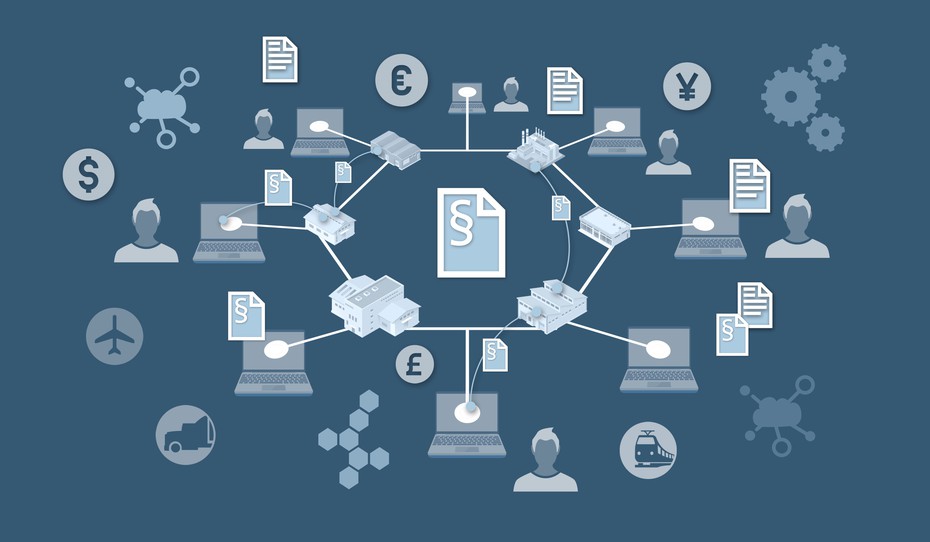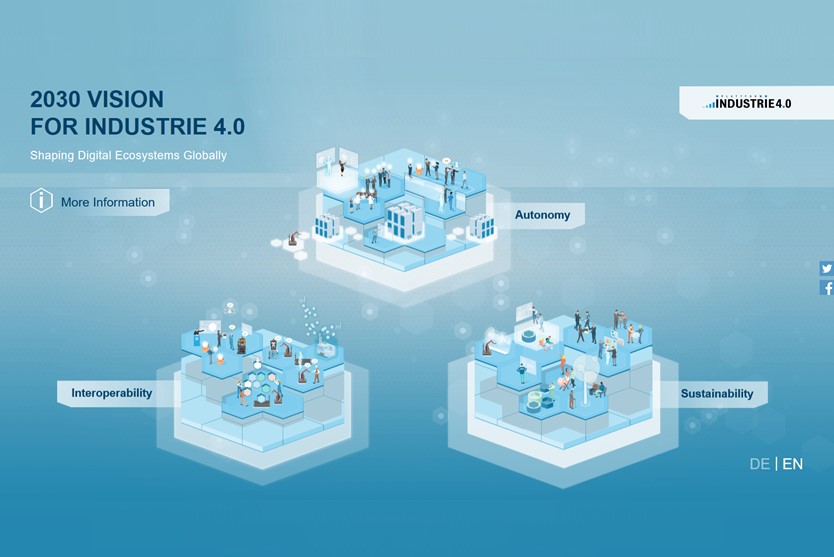
regulatory testbed
© Fraunhofer IML
A new chapter in case law
If you conclude and execute a contract, the German Civil Code (BGB) applies and, in some cases, the German Commercial Code (HGB) also. If machines in Industrie 4.0 conclude contracts and then perform these contracts in a completely automated fashion, it is necessary to clarify numerous difficult legal issues. Technologically speaking, it is already possible for machines to negotiate and conclude contracts with each other. But what about applicable law? Which law applies and what would be legally secure solutions? These are some of the issues that the regulatory testbed project will explore.
Providing an environment for analysing machine communication
The regulatory testbed is used to simulate different scenarios in which machines negotiate and conclude contracts with each other. The idea is to test various logistics and production processes. The focus here is not on whether this is technically possible, because that is already the case. Rather, it is interesting to look at how the individual processes are to be evaluated from a legal point of view. For example, it is currently not possible for a machine to form a legally relevant "will". In addition, the question arises as to who will be liable if any damage occurs as a result of automated decisions. These questions are to be looked into by legal experts, who will also identify initial fields of action and draw up guidelines. In addition, there is also the security aspect of smart contracts to be considered. The aim is to use blockchain technologies to develop secure and affordable solutions for practical use.
More technology – less bureaucracy
The project is particularly important for SMEs. It allows them to test and see how their machines take decisions within the scope of their business model and to do so in a secure and cost-effective manner. Implementing such tests without any support would be so expensive and risky that many SMEs would probably not participate in the development of such applications, or only to a limited extent. Thus, this project gives German industry the opportunity to maintain its position as global leader in Industrie 4.0 processes.
“The project is a major step towards full automation,” says project manager Martin Böhmer from the Fraunhofer Institute for Material Flow and Logistics (IML). He also goes on to say the following: “It will be possible to have machines do a lot of the paper work. In addition, smart contracts will help to significantly accelerate business processes.” Hence, it is precisely this full automation that must be well thought-out, secure and legally compliant. This is absolutely vital to enable this technical development to be successful long term. The regulatory testbed helps to ensure that automated processes are fully transparent and under control.
Negotiation patterns and recommendations for practical action
Firstly, a test environment will be created which allows for business processes to be developed and tested in a comprehensive manner. This involves creating different patterns for negotiations between machines so that it will be easy for SMEs to translate these patterns into practice in their companies. Secondly, recommendations for action with regard to new legal standards will be drawn up for policymakers and companies. There are many questions concerning negotiations and contracts between machines and applicable law which are still to be answered. Legal expertise from academics and practicians is being used to think ahead. So, in addition to clarifying legal questions, selected damage scenarios will be negotiated in simulated court proceedings.
Project background
The project, which is funded by the German Federal Ministry for Economic Affairs and Energy, was launched on 1 June 2019 and runs until 31 May 2023. The Fraunhofer Institute for Material Flow and Logistics (IML) has assumed the project management responsibility. Other project partners are the Fraunhofer Institute for Software and Systems Engineering (ISST), Saarland University (Institute of Legal Informatics) and Ruhr University Bochum (Horst Görtz Institute for IT Security).
The project receives comprehensive support from Plattform Industrie 4.0. “For such a forward-looking project, it is important that the transfer to industry is taken into consideration from the outset. We want to take care of this and support this goal with our technical knowledge,” says Dr Hans-Jürgen Schlinkert, head of the working group “Legal Framework”. The platform ensures that there is a link with practice. In particular, the working groups “Technology and Application Scenarios” and “Legal Framework” support the project and provide advice and evaluation.
More information will soon be availabl.
Contact person:
Martin Böhmer
Abteilungsleiter Informationslogistik und Assistenzsysteme
Fraunhofer-Institut für Materialfluss und Logistik IML
Email: martin.boehmer@iml.fraunhofer.de
Tel.: +49 (0) 231 / 9743- 203



